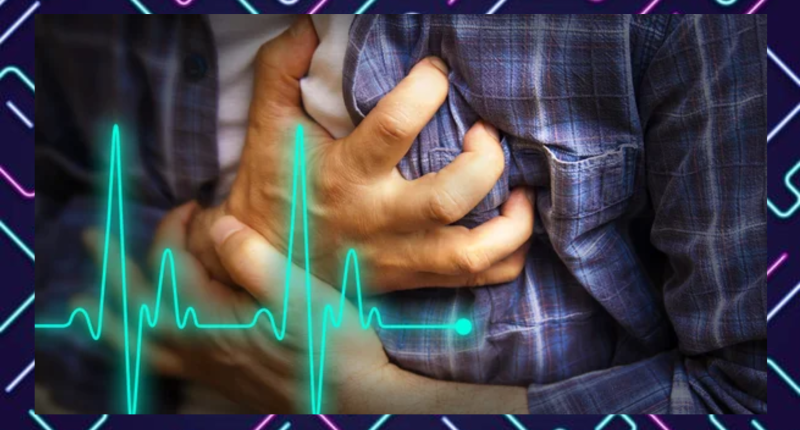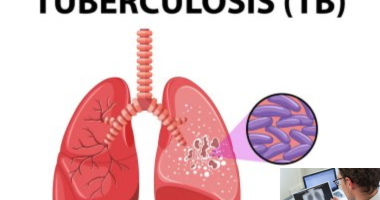Cardiovascular disease (CVD) and depression are two common and interrelated health conditions. The association between cardiovascular diseases (CVD) and depression has been well-documented, with studies indicating that patients with depression have a higher risk of CVD compared to healthy individuals. This relationship is not limited to late-onset depression but has also been observed in depressive patients of earlier ages. Several mechanisms, including hypothalamic-pituitary-adrenal (HPA) axis dysfunction, inflammation, autonomic disturbances, metabolic dysregulation, endothelial damage, hematological changes, behavioral factors, childhood traumas, neuroticism, and genetic and epigenetic factors, contribute to the link between cardiovascular risk and depression. However, previous studies have had limitations, such as the absence of analyses assessing the effects of depression subtypes, pharmacological interactions, and early markers of cardiovascular damage, chronicity, or recurrence of depression in the link between CVD and depression.
Cardiovascular Disease And Depression: Understanding The Pathophysiological Link
Microvascular dysfunction is a common link between the risk of developing both depression and cardiovascular disease. This dysfunction, characterized by impaired endothelial function in the cerebral microcirculation, low levels of chronic inflammation, and/or oxidative stress, is explained by common cardiometabolic risk factors for depression and microvascular diseases. The intercellular adhesion molecule-1 (ICAM-1), expressed in various cells and playing a key role in the blood-brain barrier, provides a link between the central and peripheral immune system and is involved in the leading steps of atherosclerosis. This molecule may be useful in the early detection of the relationship between depression and cardiovascular diseases.
Clinical trials and research findings showed that the association between cardiovascular risk and major depression might be more prominent in older depressed patients and patients with recurring episodes. However, no association was found between cardiovascular risk and depression in drug-naïve people, suggesting that cardiovascular risk in depression may not be generalized to all cases of depression and might be specific to old-age depression. This indicates that the relationship between cardiovascular risk and depression is complex and may vary depending on the patient’s characteristics and the presence of other conditions.
Depression and the Link with Cardiovascular Disease
The activation of stress pathways has been implicated as a neurochemical mechanism that links MDD and CHD. Depression is known to be associated with poorer outcomes of CHD, and psychological factors, such as major depression and stress, are now known as risk factors for developing CHD, which is as important and independent of classic risk factors, such as hypertension, diabetes mellitus, and cigarette smoking. Both conditions have great socioeconomic importance given that depression and CHD are likely to be two of the three leading causes of global burden of disease. Better understanding of the common causal pathways will help us delineate more appropriate treatments.
Psychological stress experienced by people suffering from MDD can cause deregulation in the sympathetic nervous system and hypothalamic–pituitary–adrenal (HPA) axis. This deregulation has several downstream effects, including the development of hypertension, left ventricular hypertrophy, coronary vasoconstriction, endothelial dysfunction, platelet activation, and the production of pro-inflammatory cytokines. The potential consequence of this is an elevated risk in ventricular arrhythmias and myocardial infarction (MI).
Treatment
The treatment of depression in patients with cardiovascular disease (CVD) requires a comprehensive approach, considering the unique challenges and risks associated with both conditions. The goal is not only to alleviate depressive symptoms but also to improve cardiovascular outcomes, thereby enhancing the overall quality of life and reducing healthcare costs.
Pharmacotherapy
- Antidepressants: While tricyclic antidepressants are generally avoided due to concerns about cardiotoxicity, other classes of antidepressants appear to be safe in cardiac patients. For instance, sertraline has been shown to be effective in treating depression in patients with myocardial infarction or unstable angina without significant differences in cardiovascular outcomes.
- Alternative Treatments: Exploration of alternative treatments such as omega-3 fatty acids has shown no benefit in increasing the effectiveness of antidepressant medications in CVD patients. However, exercise has been found effective in treating depression in the general population and is being studied for its potential to improve CVD outcomes in cardiac patients.
Psychotherapy
- Cognitive Behavioral Therapy (CBT): CBT has been shown to be effective in treating depression in patients with CVD. For example, a study involving CBT combined with sertraline showed a significant improvement in depression scores without a significant difference in cardiovascular outcomes.
- Interpersonal Psychotherapy: While interpersonal psychotherapy did not show a benefit over clinical management in patients with depression and coronary artery disease, it is still a valuable therapeutic option that can be considered alongside other treatments.
Combined Interventions
- Stepped Care with Problem Solving Therapy and Antidepressants: A patient-preference, stepped care approach with problem-solving therapy and antidepressants has been shown to be effective in reducing depressive symptoms and improving cardiovascular outcomes in patients with persistent depression after myocardial infarction or unstable angina.
- Patient Engagement: Encouraging patients to choose their treatment options and then intensifying treatment to achieve therapeutic goals has been found to be more effective in reducing depression than single-mode interventions.
- Risk Factor Control and Adherence: Clinicians should focus on controlling risk factors and addressing adherence problems, using non-judgmental language and possibly validated adherence assessment tools to facilitate accurate assessments.
ALSO READ: Can Mental Health Affect Your Teeth and How?
FAQs
Q: How do cardiovascular drugs impact depression?
A: Cardiovascular drugs can have various impacts on depression, depending on the specific drug and its mechanism of action. For example, statins, which are commonly used to treat high cholesterol and reduce the risk of heart attacks, have been found to potentially reduce symptoms of depression. However, the relationship between cardiovascular drugs and depression is complex and not fully understood. It’s important to note that while some drugs may have an impact on depression, this does not necessarily mean that treating depression with cardiovascular drugs is the best approach. Further research is needed to fully understand the mechanisms behind these interactions and to develop effective treatment strategies that address both conditions simultaneously
Q: How can the link between CVD and depression be treated?
A: Both conditions must be treated concomitantly, with drugs other than tricyclics being used when needed to treat the underlying depression and not as mere prophylactic of cardiac outcomes.
Q: How prevalent is depression in patients with CVD?
A: The prevalence of depression in patients with CVD is high, with up to 40% of patients meeting the criteria for major depressive disorder (MDD) after suffering a major cardiac event.
Q: What are the potential consequences of psychological stress in patients with MDD and CVD?
A: Psychological stress experienced by people suffering from MDD can also cause deregulation in the sympathetic nervous system, which has a number of deleterious downstream effects, including the development of hypertension, left ventricular hypertrophy, coronary vasoconstriction, endothelial dysfunction, platelet activation, and the production of pro inflammatory cytokines. The potential consequence of this is an elevated risk in ventricular arrhythmias and MI.
References
- https://www.mdpi.com/2227-9059/11/7/1903
- https://www.ncbi.nlm.nih.gov/pmc/articles/PMC10242288/
- https://www.ncbi.nlm.nih.gov/pmc/articles/PMC4800172/
- https://www.ncbi.nlm.nih.gov/pmc/articles/PMC10710900/
- https://www.sciencedirect.com/science/article/pii/S0165178119319547









